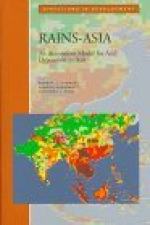|
This section contains 469 words (approx. 2 pages at 300 words per page) |

|
acidification: The process of making lakes, forests, or other ecosystems excessively acidic through acid deposition.
acid deposition: When acids fall from the air and deposit on the ground, buildings, or living things.
acid neutralizing capacity: The ability of water or soil to naturally neutralize acids.
aluminum: A silvery-white element that is commonly found in the earth's crust. When released in soil and water, it is believed to be toxic.
Alzheimer's disease: A disease that affects the brain, first with impaired memory, followed by impaired thought and speech, and finally complete helplessness.
anemia: A lack of red blood cells in the body that causes weakness and fatigue.
asthma: A chronic respiratory disease, often arising from allergies, that is characterized by sudden recurring attacks of labored breathing, chest constriction, and coughing.
bioaccumulation: The accumulation of a substance, such as a toxic chemical, in various tissues of a living organism.
calcium...
|
This section contains 469 words (approx. 2 pages at 300 words per page) |

|




